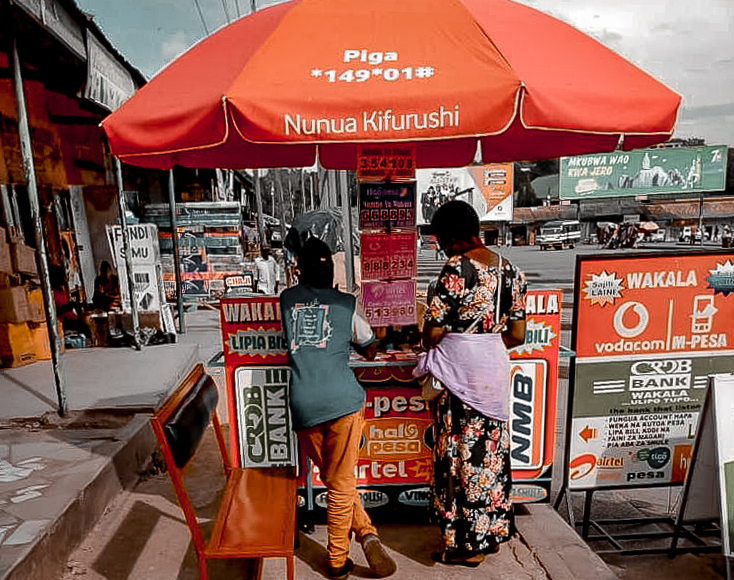Encouraging Consumers to Transact with New Mobile Money Agents in Tanzania

Researchers in Tanzania conducted a randomized evaluation to measure the impact of encouraging consumers to make transactions with different mobile money agents.
Across low- and middle-income countries, the rise of mobile money relies on an ever-expanding network of agents offering assistance to consumers to complete transactions. In Tanzania, agents are concentrated in public markets and provide similar basic services, giving consumers options on who to transact with. However, evidence suggests that agent reliability is a significant concern in Tanzania, with the percentage of visits that are successful ranging from 32 percent to 79 percent in a market on average. Despite this, many consumers tend to use the same agent for each transaction, suggesting that consumers may choose agents based on social ties or that they are unaware of cost or reliability.
Researchers conducted a randomized evaluation to measure the impact of encouraging consumers to make transactions with different mobile money agents, including new agents they have not used in the past. These mobile money agents were categorized as either high-quality or low-quality based on the likelihood of successfully completing transactions and the fees they charge for completing transactions (conditional on successfully completing the transaction).
A total of 400 consumers in 10 public markets in Dar Es Salaam and Mwanza were randomly assigned to either visit agents they use regularly; visit agents they use regularly and high-quality new agents; visit agents they use regularly and low-quality new agents; or serve as a comparison group. Researchers will measure the type, size, & frequency of transactions, the mode of transactions (independently or with agent assistance), choice of agents, reliability of transactions, knowledge of agent reliability, and resilience to financial shocks.
Results anticipated in late 2024.












